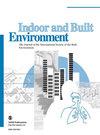The mechanism of high carbon economy, local tax system and urban environmental pollution: Insights from China
IF 3.2
3区 工程技术
Q2 CONSTRUCTION & BUILDING TECHNOLOGY
引用次数: 0
Abstract
The phenomenon of ‘pollution for promotion’ has been addressed in the literature from the perspective of tax competition or local protection, but the underlying institutional causes have not been thoroughly discussed. In this study, we put forward the theoretical hypothesis of ‘industrial pollution as a last resort due to reliance on commodity taxes’ and empirically tested this hypothesis using data on commodity taxes and industrial pollution in prefecture-level cities from 2003 to 2019. Our findings indicate that a 1% increase in the share of GST (Goods and Services Tax) is associated with a significant average increase of approximately 0.51% in industrial pollution. The primary channels through which GST affects industrial pollution include the expansion of production scale amongst heavy polluters, reduced environmental requirements for large taxpayers and increased land development. Commodity tax dependence creates a barrier for local governments to adopt more sustainable economic development models, leading to increased industrial pollution. The findings of this study contribute to a better understanding of the institutional barriers during China’s economic transformation, shed light on the responses of firms and governments within existing institutional frameworks, and provide policy insights for transitioning towards high-quality economic development.高碳经济、地方税体系与城市环境污染的机理:来自中国的启示
已有文献从税收竞争或地方保护的角度探讨了 "以污染促发展 "的现象,但对其背后的制度原因并没有深入探讨。在本研究中,我们提出了 "依赖商品税导致工业污染不得已而为之 "的理论假设,并利用 2003 年至 2019 年地级市的商品税和工业污染数据对这一假设进行了实证检验。我们的研究结果表明,商品及服务税(GST)比重每增加 1%,工业污染就会显著增加约 0.51%。商品和服务税影响工业污染的主要渠道包括重污染企业扩大生产规模、降低对纳税大户的环保要求以及增加土地开发。对商品税的依赖阻碍了地方政府采用更可持续的经济发展模式,导致工业污染加剧。本研究的结论有助于更好地理解中国经济转型过程中的制度障碍,揭示企业和政府在现有制度框架下的应对措施,并为向高质量经济发展转型提供政策启示。
本文章由计算机程序翻译,如有差异,请以英文原文为准。
求助全文
约1分钟内获得全文
求助全文
来源期刊

Indoor and Built Environment
环境科学-工程:环境
CiteScore
6.40
自引率
25.00%
发文量
130
审稿时长
2.6 months
期刊介绍:
Indoor and Built Environment publishes reports on any topic pertaining to the quality of the indoor and built environment, and how these might effect the health, performance, efficiency and comfort of persons living or working there. Topics range from urban infrastructure, design of buildings, and materials used to laboratory studies including building airflow simulations and health effects. This journal is a member of the Committee on Publication Ethics (COPE).
 求助内容:
求助内容: 应助结果提醒方式:
应助结果提醒方式:


